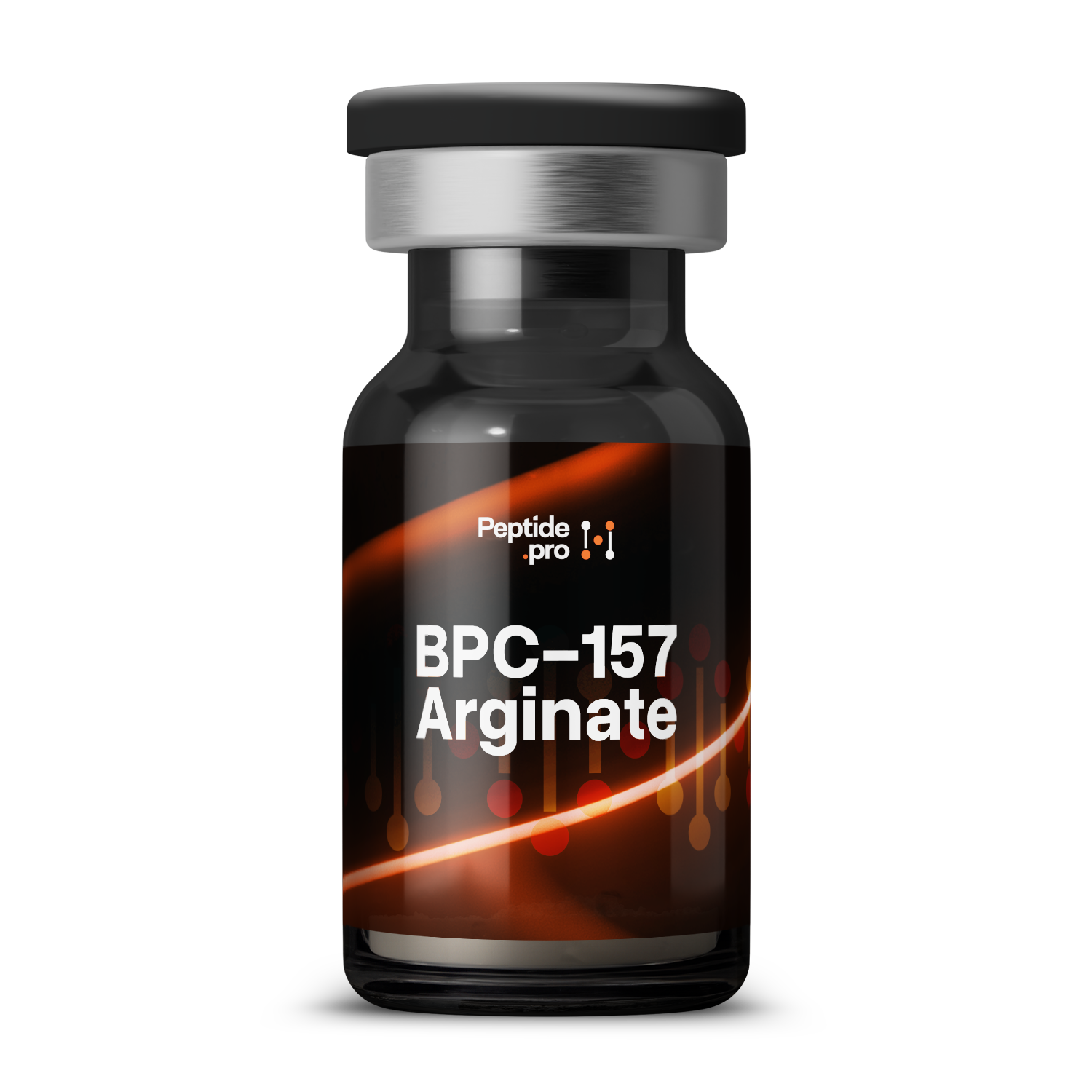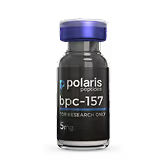BPC-157 Arginate
BPC-157 Arginate is a lab-made salt form of the 15–amino-acid peptide BPC-157, combined with arginine to boost solubility and stability. It’s studied for its potential to accelerate healing of muscles, tendons, and gut lining by promoting blood vessel growth and tissue regeneration. Most research focuses on its role in injury recovery models.
Compound Overview
About the product
BPC-157 Arginate consists of the sequence Gly-Glu-Pro-Pro-Pro-Gly-Lys-Pro-Ala-Asp-Asp-Ala-Gly-Leu-Val paired with an arginine counter-ion. The arginine salt enhances peptide solubility in aqueous solutions. It is synthesized by Fmoc solid-phase peptide synthesis and purified by HPLC to greater than 95 percent purity. Mass spectrometry confirms the correct mass and sequence of the peptide–salt complex.
BPC-157 Arginate is believed to support angiogenesis (new blood vessel formation) and fibroblast activity, promoting tissue repair. It may modulate nitric oxide pathways and upregulate growth factors involved in wound healing. The arginate form facilitates consistent delivery of the active peptide. Human mechanistic data are not yet available, so its precise molecular effects in people remain under study.
The peptide salt is under investigation for its potential to accelerate healing of tendon, ligament, and mucosal injuries. Preliminary human case reports describe improved recovery from gastric ulcers and ligament strains. Users report maintained normal blood chemistry during use. Controlled clinical trials are needed to confirm these benefits.
Reported effects in human case reports are minimal, primarily mild injection-site discomfort. No serious adverse events or systemic hormonal changes have been documented. Data on long-term administration, pregnancy, and lactation are lacking. Recommended monitoring includes routine blood panels and assessment of treatment response.
BPC-157 Arginate is produced by sequential Fmoc solid-phase peptide synthesis on a resin support. After chain assembly, the peptide is cleaved, combined with arginine, and purified via HPLC to over 95 percent purity. Mass spectrometry confirms the integrity of the peptide–salt complex. Manufacturing follows research-grade compounding standards.
BPC-157 Arginate is classified for research use only and has no approval from the U.S. FDA, EMA, or other major regulators. It cannot be prescribed or marketed as a therapeutic. Researchers may obtain it under investigational peptide regulations, which vary by jurisdiction. No clinical or over-the-counter preparations exist.
Reports describe subcutaneous dosing of 200–500 µg once or twice daily. No standardized human dosing guidelines exist outside of case-based usage. Duration of reported use ranges from two to eight weeks. All administration should occur under approved research protocols.
- Do limit use to institutional-review-board–approved research settings.
- Do monitor complete blood count and metabolic panels during treatment.
- Don’t assume the arginate form confers proven clinical advantage.
- Don’t use during pregnancy, lactation, or active malignancy.
- Q: Is BPC-157 Arginate more effective than standard BPC-157?
- A: No comparative human data exist to support superiority.
- Q: Can it be administered orally?
- A: Only subcutaneous injection has been reported in case reports.
- Q: Are there any systemic hormonal effects?
- A: No hormonal changes have been documented in available human reports.
For research use only. Not approved for medical use.


